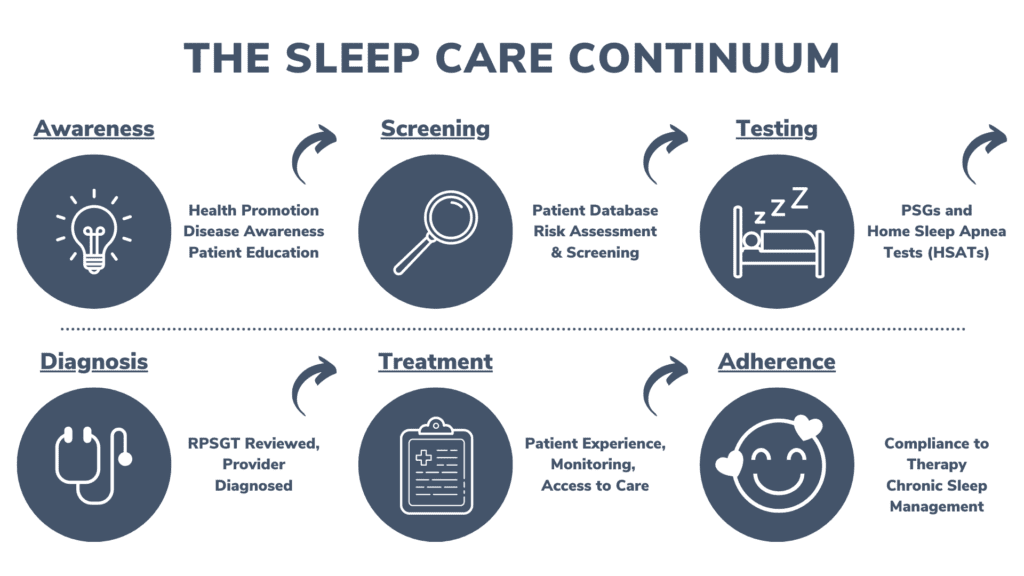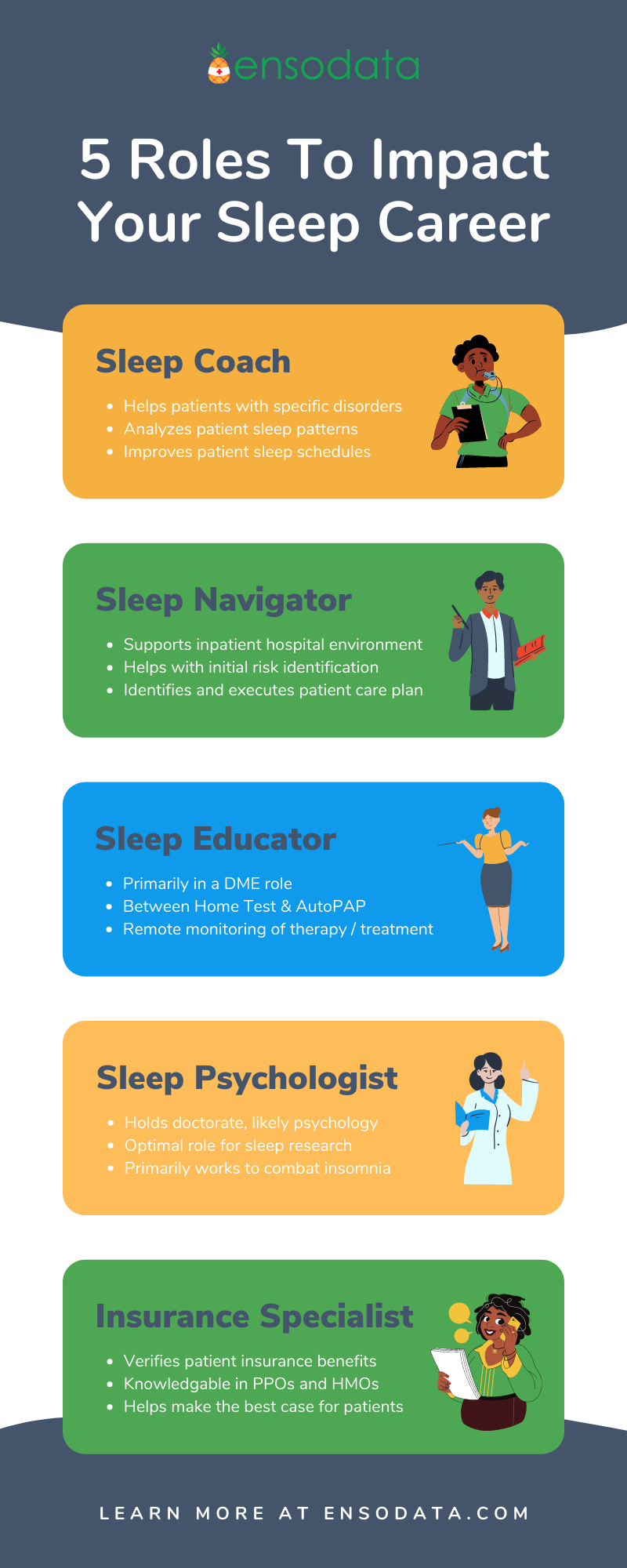How to know when you are ready to take the next step in your Sleep Medicine career
Are you looking for additional ways to affect patients and sleep center goals beyond scoring studies? Would you like to take your career in sleep medicine to the next level? Perhaps you’re a sleep tech who’s interested in things like accreditation, marketing, patient education, or remote monitoring. Or maybe you’re a lab manager who wants to further develop the skills and talents of your team in order to expand their responsibilities into other areas of the clinic. No matter what your role is in a sleep center, there are opportunities to diversify and cultivate your career or the careers of your staff. In this post, we highlight five sleep medicine roles that can develop sleep professionals, influence sleep center goals, make a positive impact on patient care and experiences, and expand careers in sleep.Credentials to Expand Sleep Center Careers
One way for sleep technologists to expand their role within a sleep center is to go after additional credentials and courses. For night techs, that might mean taking an A-STEP (Accredited Sleep Technologist Education Program) course to work toward a Registered Polysomnographic Technologist (RPSGT) certification, and after completing an introductory course, earning your RPSGT. Check out our latest sleep story for an overview of A-STEP introductory courses. For those already holding their RPSGT, the CCSH (Certification of Clinical Sleep Health) might be a proper next step. For CCSH holders, new career opportunities like Sleep Navigation, Sleep Education, and Sleep Coaching are possible. Other opportunities in sleep medicine might require further education, like the doctoral level education required for Sleep Psychology. With that said, let’s dive into our infographic featuring five careers for sleep professionals and how they impact the patient care continuum!How these Roles Influence the Care Continuum
Throughout the sleep care continuum, each of the five roles in our infographic (Sleep Coach, Sleep Navigator, Sleep Educator, Sleep Psychologist, and Sleep Insurance Specialist) support patients in critical ways. Education is important at many levels, and all five roles can and do play a role in generating awareness for sleep health concerns. Sleep Navigators and Sleep Coaches often serve as the first point of contact for patients in the care continuum. Sleep Navigators use STOP-BANG tests and their expertise to screen and identify patients in hospitals who need additional sleep care. Similarly, it is crucial for Sleep Coaches to escalate clients to a clinical evaluation should those same red flags go off during an introductory sleep coaching session. The testing and diagnosis of sleep disorders is primarily handled by Physicians and RPSGTs, but the patient receives a lot of support from Sleep Educators during the treatment and adherence phases. Sleep Coaches can also be a factor in the patient care plan, providing education and encouragement to patients who are using a CPAP or oral appliance for the first time.
Sleep Insurance Specialists help patients navigate the challenging insurance landscape. Remaining compliant and following treatment is much easier when logistical burdens are lifted by a talented billing and insurance specialist. Sleep Insurance Specialists are able to decipher patient coverages, make sure patients know how much they’ll be paying, and help get patients to pay their bills. They can also submit claims to help a clinic get reimbursed quickly.
Adherence is also a serious challenge, so Sleep Coaches, Sleep Psychologists and Sleep Educators all play a pivotal role in giving patients the support they need to succeed and remain compliant with treatment. For Sleep Psychologists, patient treatments focus around behavioral changes, whereas Sleep Educators typically provide DME support for CPAP and other therapeutic devices.
The testing and diagnosis of sleep disorders is primarily handled by Physicians and RPSGTs, but the patient receives a lot of support from Sleep Educators during the treatment and adherence phases. Sleep Coaches can also be a factor in the patient care plan, providing education and encouragement to patients who are using a CPAP or oral appliance for the first time.
Sleep Insurance Specialists help patients navigate the challenging insurance landscape. Remaining compliant and following treatment is much easier when logistical burdens are lifted by a talented billing and insurance specialist. Sleep Insurance Specialists are able to decipher patient coverages, make sure patients know how much they’ll be paying, and help get patients to pay their bills. They can also submit claims to help a clinic get reimbursed quickly.
Adherence is also a serious challenge, so Sleep Coaches, Sleep Psychologists and Sleep Educators all play a pivotal role in giving patients the support they need to succeed and remain compliant with treatment. For Sleep Psychologists, patient treatments focus around behavioral changes, whereas Sleep Educators typically provide DME support for CPAP and other therapeutic devices.







